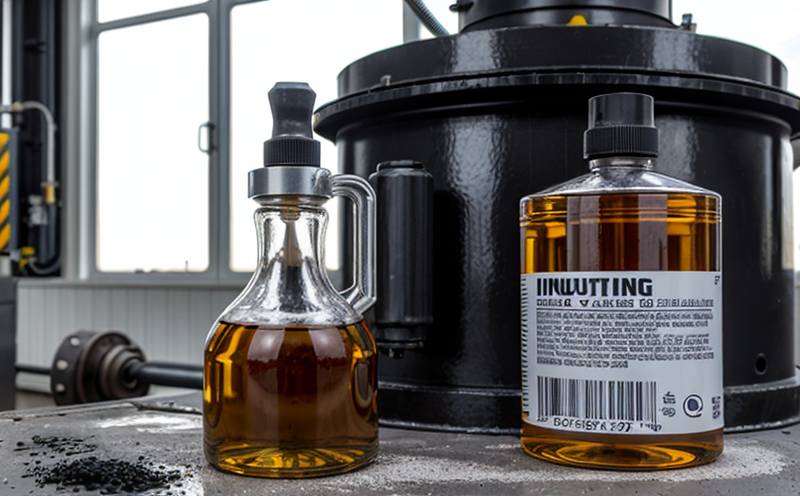ASTM D873 Oxidation Stability Testing of Aviation Fuels
The ASTM D873 test method is a critical standard used to evaluate the oxidation stability of aviation fuels. This testing ensures that fuel meets stringent quality control standards, which are essential for preventing equipment failures and ensuring safe engine operation in aircraft.
The primary focus of this service is to assess how rapidly the fuel forms acids during storage or use under specified conditions. The test simulates real-world scenarios where aviation fuels might be exposed to various environmental factors over time. It measures the ability of a fuel to resist oxidative degradation, which can significantly impact engine performance and longevity.
During testing, samples are exposed to controlled conditions that mimic actual operational environments, including temperature, humidity, and exposure to air. The ASTM D873 test method involves placing aviation fuel in a closed vessel with an oxidizing agent (such as copper powder) for a specified period. After the prescribed time, the sample is analyzed to determine its acidity level using titration methods.
The results of this test provide critical insights into the potential for fuel degradation and are used by quality managers, R&D engineers, compliance officers, and procurement teams to make informed decisions about fuel selection and maintenance schedules. Understanding these data points helps ensure that aviation fuels meet not only current industry standards but also anticipate future challenges.
The ASTM D873 test is particularly important for the aerospace sector where high reliability and safety are paramount. By adhering to this standard, laboratories can provide accurate and reliable results that contribute to the overall health of aircraft engines and support the global aviation industry's commitment to operational excellence.
Industry Applications
| Application Area | Description |
|---|---|
| Aerospace Industry | Ensures aviation fuel meets critical quality standards to prevent engine failures and ensure safe operation. |
| R&D for Aviation Fuels | Evaluates new formulations of fuels under realistic conditions to improve performance and reliability. |
ASTM D873 testing is widely used in the aerospace industry, where maintaining fuel quality is crucial for ensuring safe flight operations. By adhering to this standard, manufacturers can verify that their products meet stringent quality control standards and are suitable for long-term use.
Customer Impact and Satisfaction
- Enhanced Safety: By ensuring fuel meets the highest quality standards, this test contributes to safer flight operations.
- Improved Reliability: Consistent results from ASTM D873 testing help in maintaining reliable engine performance and longevity.
International Acceptance and Recognition
- ISO/IEC: ASTM D873 is internationally recognized and accepted by global standards bodies.
- Aerospace Industry: Widely used across the aerospace sector, ensuring compatibility with international regulations and best practices.





